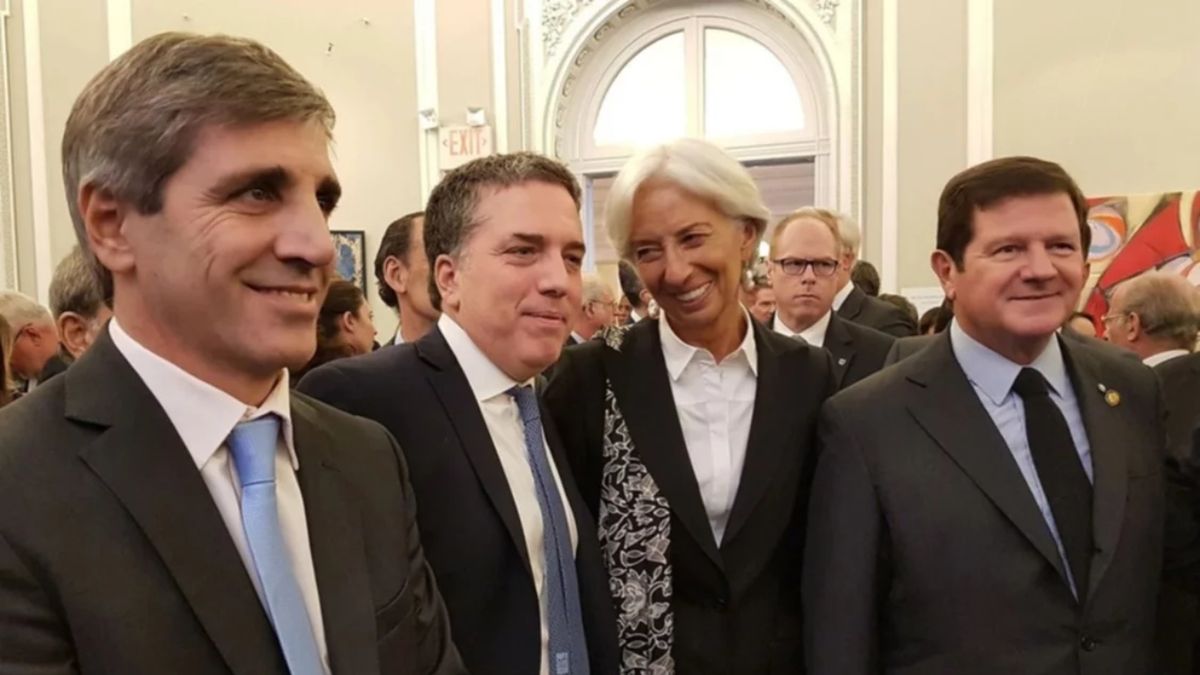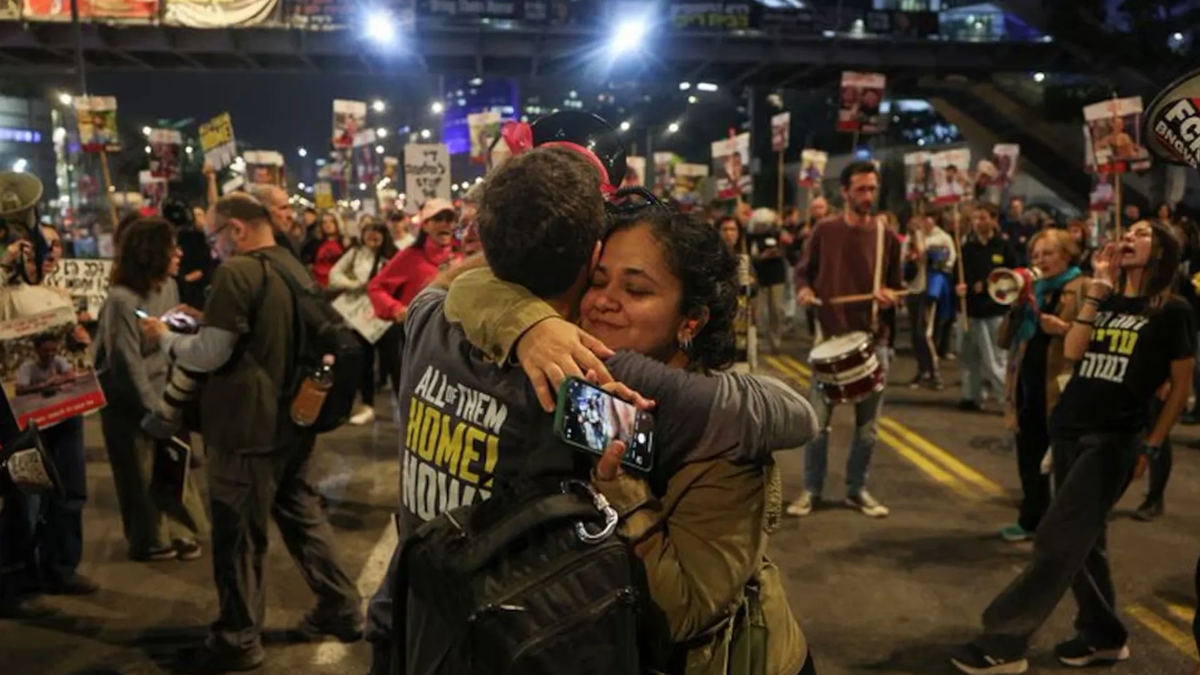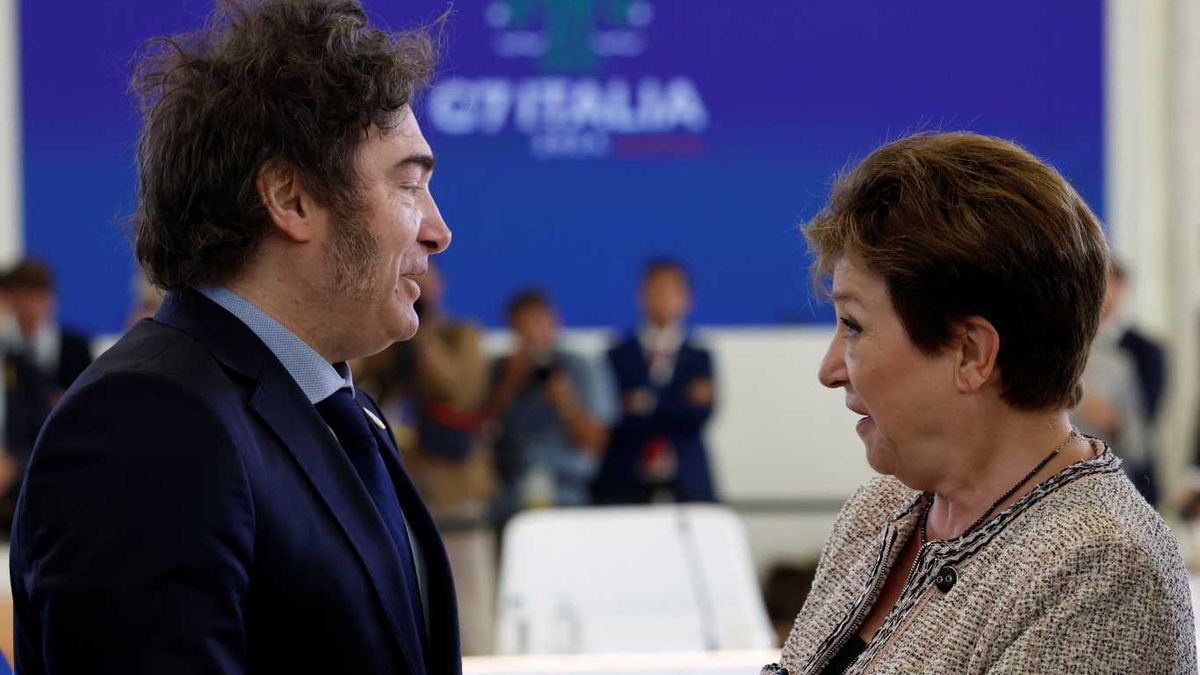GUZMAN KRISTALINA FMI.jpg
With the agreement with the IMF the Government aimed to fulfill commitments of the confidential agenda. Thus, the BCRA would continue to supply cheap dollars in order to decompress the pressures that the – in their day – betrothed were setting on it.In record time the Stand-By was ready. A line of loans with the conditionalities of the usual IMF agreements and the monitoring of compliance with goals. We went back 13 lockers -years-. We’d gone back to 2005 in the blink of an eye. Initially there was talk of a loan for about u $ s 25,000 million. But it quickly became known that the Government planned to access a new IMF facility (high access stand by) to increase to some u $ s40,000 million, a figure that would alleviate the outlook for the Government facing elections in 2019 and financing needs for about u $ s 47,000 million until the end of his term. The duration of a Stand-By is between 12 and 24 months, it can be more. The loan amount has to do with the need for financing and the ability to pay. Someone said: “It seems to me that they miscalculated.”
Normal access programs can reach up to 145% of the quota in 12 months and up to 435% in the program. In exceptional access, the IMF can lend over the limits, which implies a more rigorous analysis by the Executive Board of the agency. That did not happen. When a country requests a loan from the IMF, it agrees to adjust its economic policies to overcome the problems that led to it having to request assistance. This program includes quantitative conditions such as performance criteria and indicative goals, international reserves and deficit or public debt goals, and non-conditioning structural measures.
REMEMBER: The Demonstration on Argentina of May 14, 2018
Gerry Rice: “IMF staff continue talks with Argentine authorities towards an IMF-supported program. Our common goal is to reach a speedy conclusion to these discussions. The IMF Board of Directors meeting on Argentina is scheduled for Friday, May 18 (N of R: 4 days later). This will be an informal meeting, as part of our regular process of briefing the Board on the negotiations for the IMF’s high access programs. Lagarde and Nicolás (N of R: he was referring to Dujovne) met to discuss financial support from the IMF on May 10, 2018 (N of R: 4 days before)
fmi vocero.jpg

Gerry Rice conveyed his support for the Central’s measures.
NA Stock Image
We discussed how the IMF can better help the authorities to strengthen the Argentine economy in light of renewed and significant volatility in financial markets. Our meeting was an opportunity for Minister Dujovne to reaffirm the government’s economic plans and priorities and for me to hear how the IMF can best support the government’s efforts.
“I highlighted my strong support for Argentina’s reforms to date and expressed the Fund’s willingness to continue helping the government. Dujovne has requested that our teams work together towards a High Access Stand-By Agreement in support of the authorities’ comprehensive economic program. “I have briefed the IMF Executive Board on the progress we have made and have instructed the IMF team to continue discussions toward a program supported by the Fund.”
The IMF’s vision of Argentina (before the request for help) and what it could demand of the Argentine government
Message in article IV of Dec-17: “Despite the economic recovery, the chosen economic policy mix generated adverse secondary effects. The high fiscal deficit led to an increase in foreign currency debt, a growing current account deficit, high external financing needs, and an appreciation of the peso. In turn, the monetary financing of the fiscal deficit weakened the credibility of the BCRA’s inflation targeting scheme and the inflation rate did not drop ”.
The priorities include: Elimination of the primary deficit for 2019 through a reduction in the public sector through a reduction in primary spending, which is high in regional terms.
The measures: reduce public employment, restore the sustainability of the pension system-raising the retirement age of women, adjustment of salaries due to expected inflation, etc.-, rationalization of social spending-elimination of duplications, improvement of the objective, reduction of administrative costs and indexation of expenditure due to expected inflation-, reduction of other expenses -improvement of the bidding process, reduction of transfers to provinces, municipalities and public companies-. Reduction of the assistance of the BCRA to the treasury. A less distorting tax system. A more flexible and more balanced labor market in terms of regulations, greater competition in national markets, greater fight against corruption and elimination of barriers to trade and foreign investment. A more flexible and more balanced labor market in terms of regulations, greater competition in national markets, greater fight against corruption and elimination of barriers to trade and foreign investment.
In summary
In reality, the Government decided to request financial assistance from the IMF to avoid defaulting on the public debt. He went to the IMF because it collapsed – this time without a bank run. Since January 2018, investors were not willing to buy Argentine bonds and the Government was finding it difficult to renew the stock of Treasury bills. They went to the IMF to avoid a financial crisis with a social outbreak included as in 2001. But Argentina is worse off with the Agreement with the IMF than if Macri had renegotiated the debt with private creditors, assuming responsibility for the failure it had experienced.
The objective: to leave the country hooked
The Government promised to accelerate the pace of fiscal convergence (the same but faster, Macri to Vargas Llosa). Reduce the primary deficit neglecting any other matter. Try to correct the inconsistencies in monetary and fiscal policy that made it impossible to reduce the inflation rate and disarm the extravagant stock of LEBAC.
Finally Argentina obtained a loan from the IMF for u$ 57 billion -12.5 times his quota-in record time, with political support from President Trump.
The IMF’s intentions:
1) restore the trust lost by Cambiemos so that it can win the elections again and
2) help to buy and withdraw cheap dollars from creditors.
The government had to use u $ s 35 billion to pay debt and even so he should have received 9 billion more to reach the end of the term, but with a dollar of $ 60 (more than 6 times the one he took at the official exchange rate- $ 9.75- and 4.4 at the beginning of Prat Gay-Sturzenegger ($ 13.50).
Other themes
The IMF not only asked for greater fiscal effort, but greater transparency of public accounts,trying not to follow creative accounting like the one he had identified: “cash expense” -Priority Investment Program -which appeared computing as “Advances to suppliers and contractors” -and how “spending” payments that were made under the PPP. The excesses of corruption were of such magnitude that even the IMF would not tolerate it.
In the midst of the exchange rate turbulence, the new BCRA head preferred to use reserves to dispense dollars and avoid his expulsion from the “financial champions league 2018”. Although it had a very limited quota to do so due to RIN’s goal floor and the IMF resisted discretion, “Messi did it” getting the IMF to ask Macri to kick him out. The IMF did not want to finance the flight of its friends, it preferred to let the exchange rate float so that the exchange market would equilibrate at a higher rate.
Luis Caputo 100-Year Bond Man.jpg

Courtesy: Now Jump
In the IMF’s vision, US $ 50,000 million would not even be enough to cover all financial obligations (Public Debt). In 2019 it would not only be required to use the IMF disbursements as financing, but Argentina’s markets would be reopened to place debt. But that did not happen and the dollar soared without continuity. The currency mismatch between financing in dollars and financial needs in pesos would lead to the sale of dollars without respite. Impossible to finance the hole that caused the drainage and carry out debt placements for the disarmament of the LEBAC stock.
In the midst of the exchange rate tensions, they used reserves to give dollars to those who pressed and avoid releasing it suddenly, nominalizing the economy with an escalation. An impact on purchasing power and the level of activity greater than what we saw, would have made governance explode. However, the IMF chose its priorities to finance capital flight, to the detriment of Caputo’s friends, who had some investment funds left, who would ultimately press the parallel with Alberto Fernandez.
National blasting was feared
Of 37 indicators that were monitored, 24 showed falls in one month with respect to the previous quarter. Using the April-June 2018 data, establishment macroeconomists revised the projection for 2018 downward. Still, the decline in GDP exceeded their generous predictions. The economy had entered its second recession in just two years. A whole world brand. According to Sturzenegger, Macri left the Government with per capita income 11% below where he took it. Later it would be written about that uncultivated plutocracy taught by the Panama and Paradise Papers, with terrible governments like the one described, in which Argentina occupying the 70th position in GDP, however it reached the 3rd place of hidden wealth of the global elites. Only after Russia and the UK.
Macri Panama Papers Offshore Companies.jpg

In four years they dismantled society, stifled democracy and unleashed a level of corruption never seen before in both volume and speed. Today after the two pandemics, democracy is squeezed between the IMF, a citizenry vulnerable to libertarian demagogy, and the anti-republican powers that operate on justice. We are experiencing a perverse way of political life, driven by economic interests and a new fervor for dangerous characters without coordinates or a democratic spirit. There are no limits, so it was and we can go, if the supporters of the minimal state in campaign come to power. Because then they become monstrous governments, in power, flight of foreign exchange and public spending financed with debt.
Professor of Postgraduate UBA and Master’s degrees in private universities. Master in International Economic Policy, Doctor in Political Science, author of 6 books. @PabloTigani
Source From: Ambito




